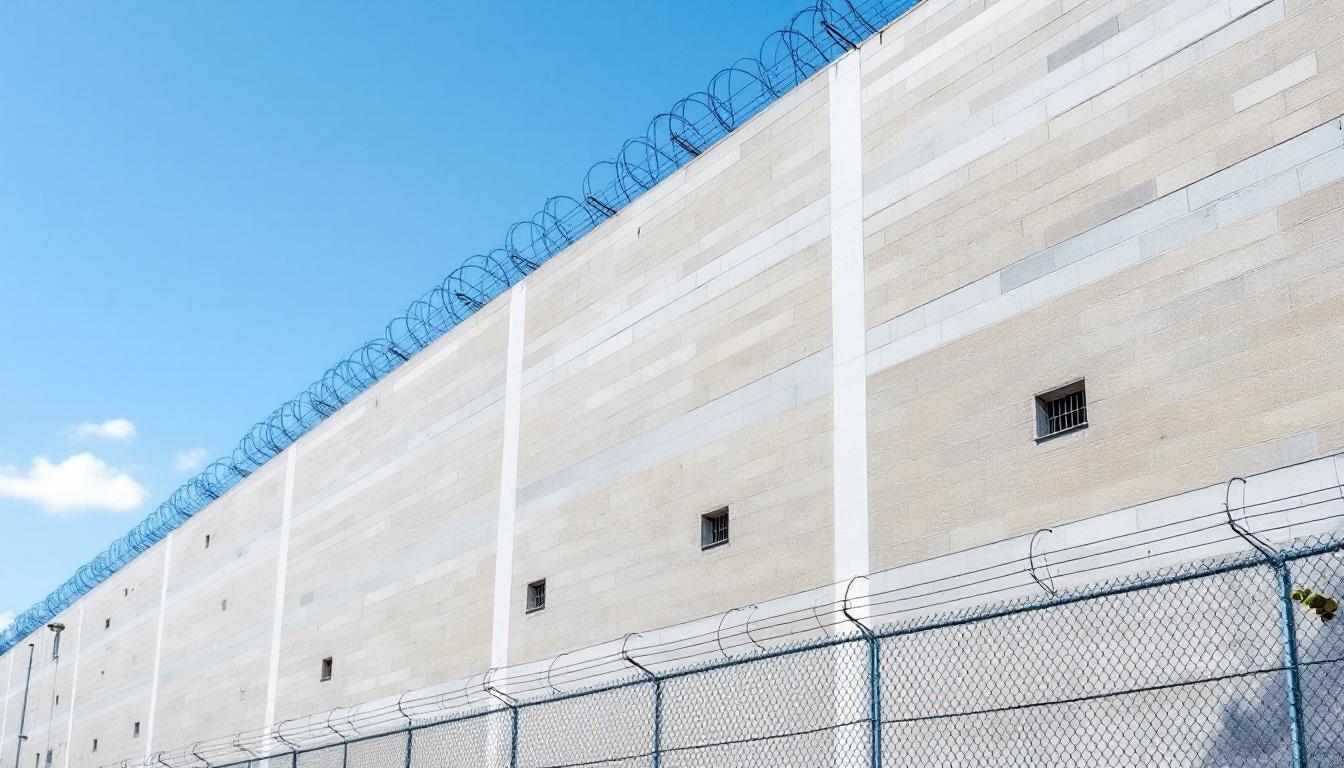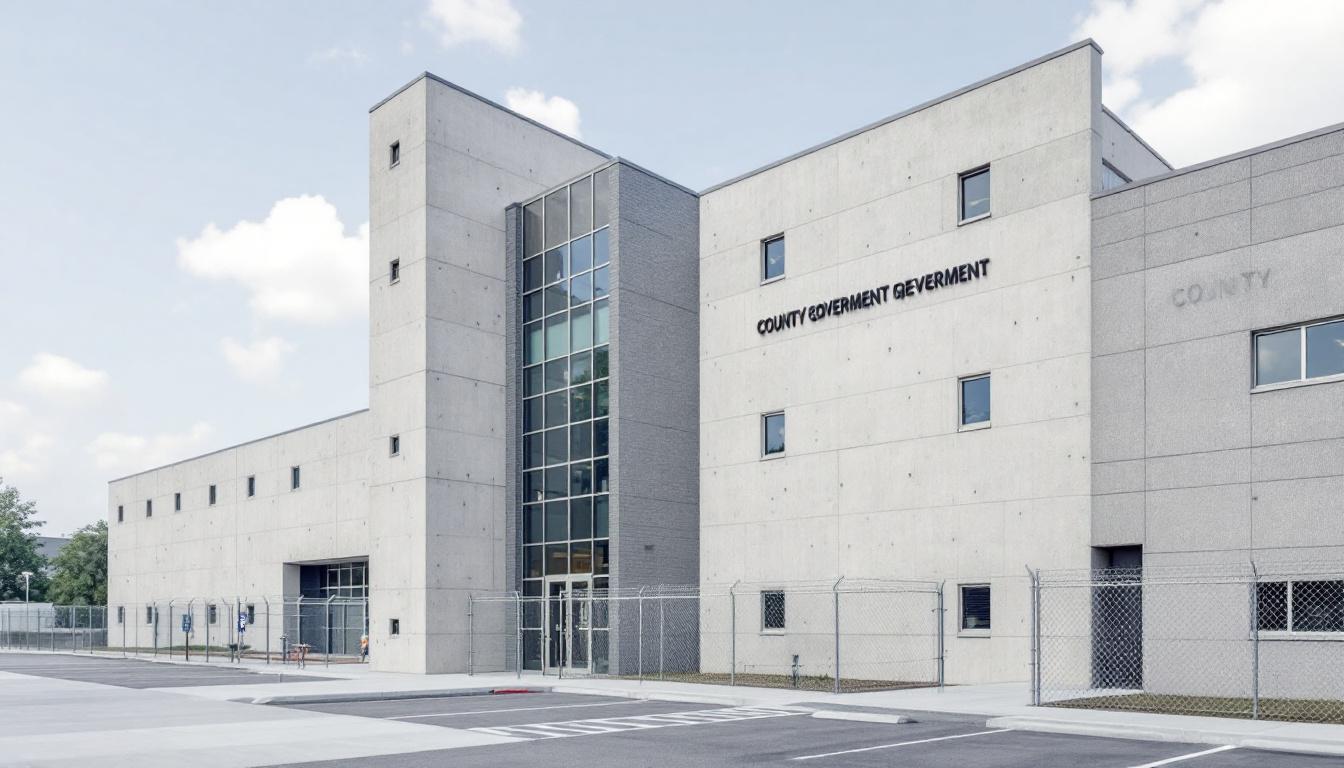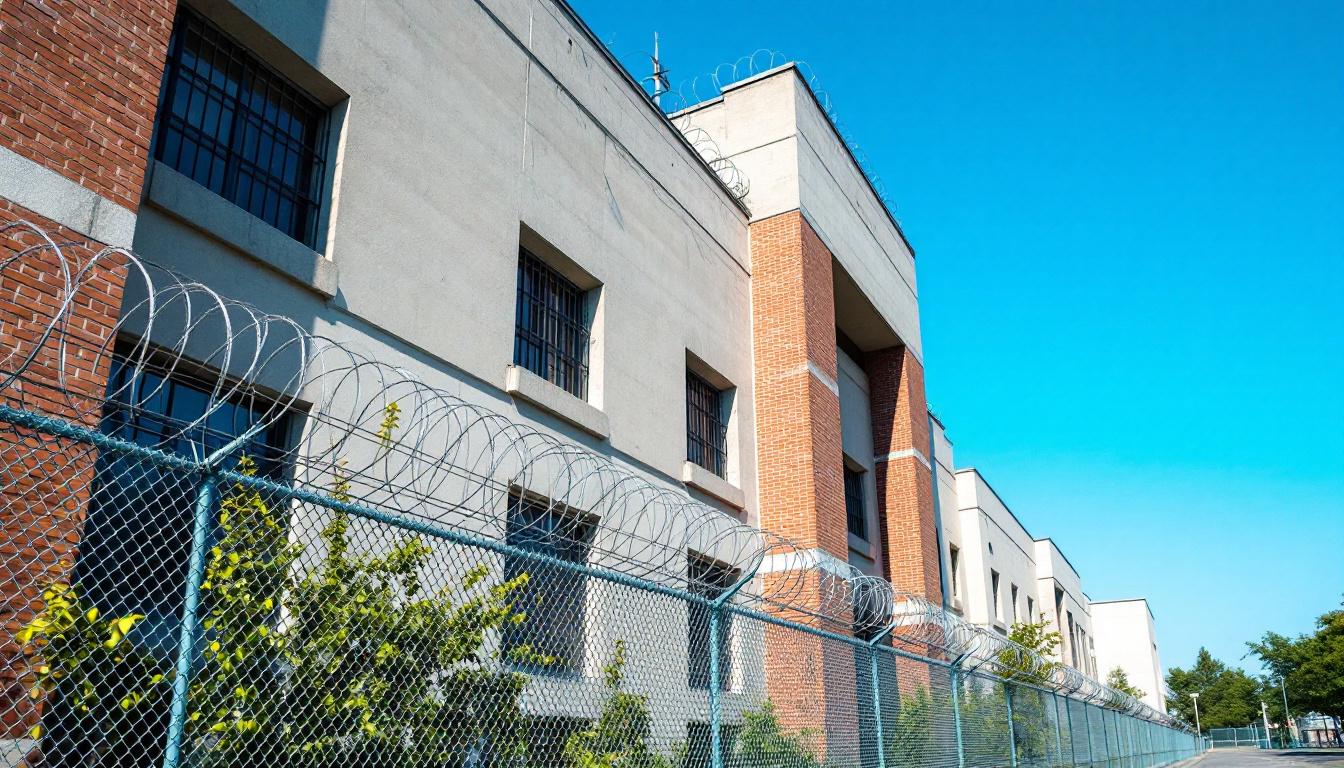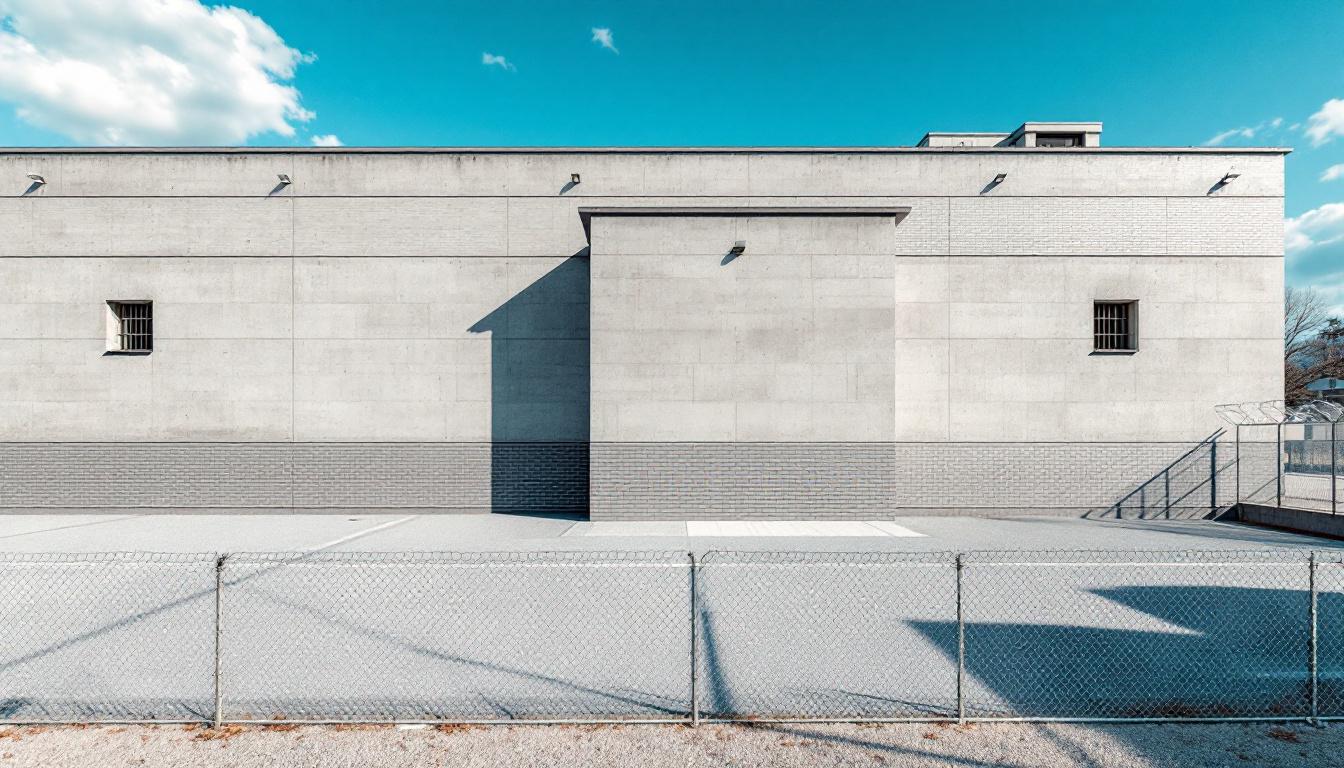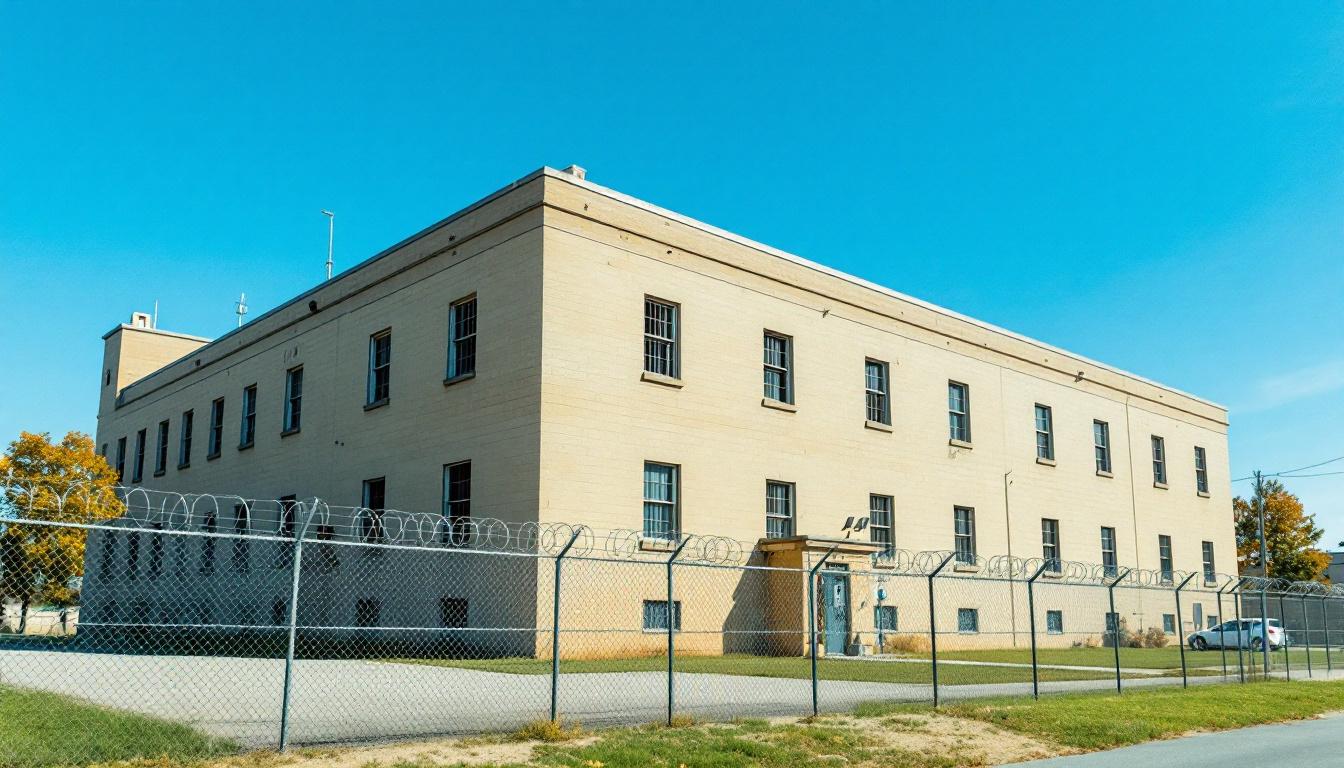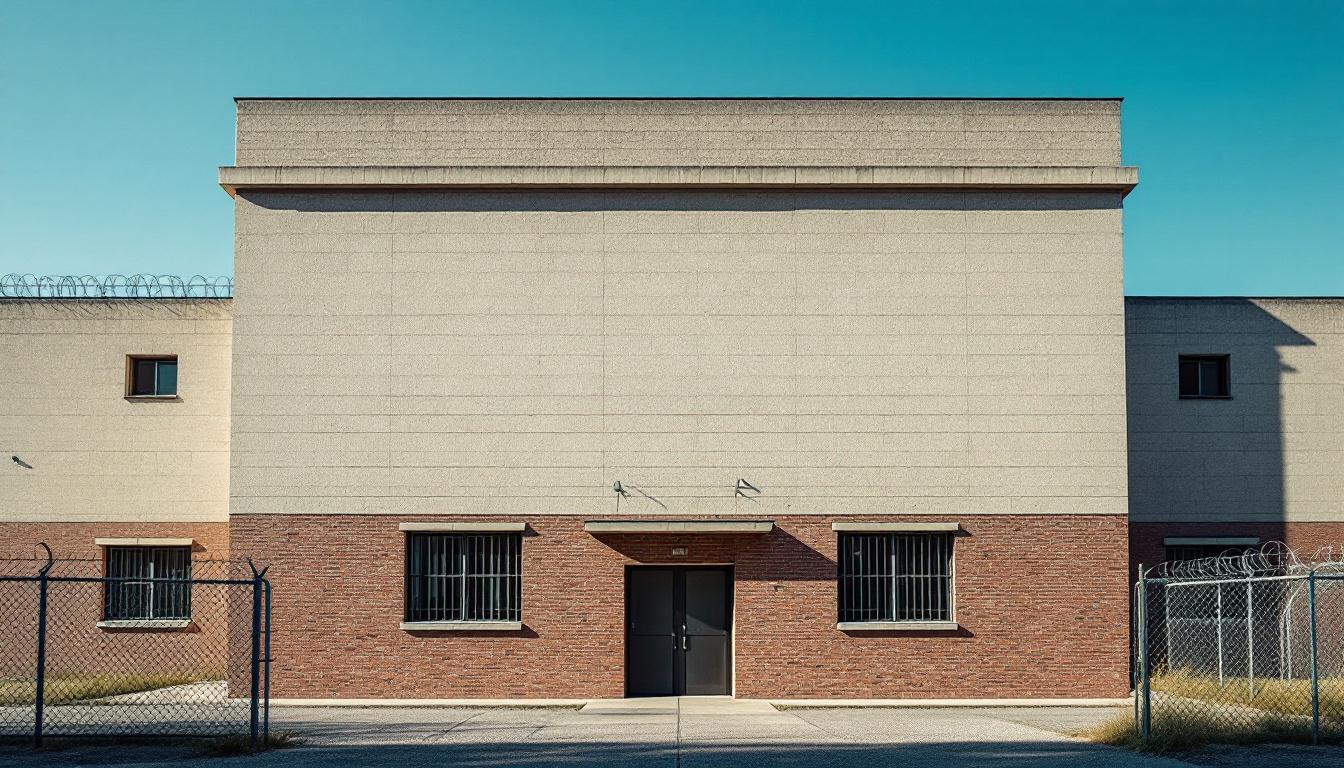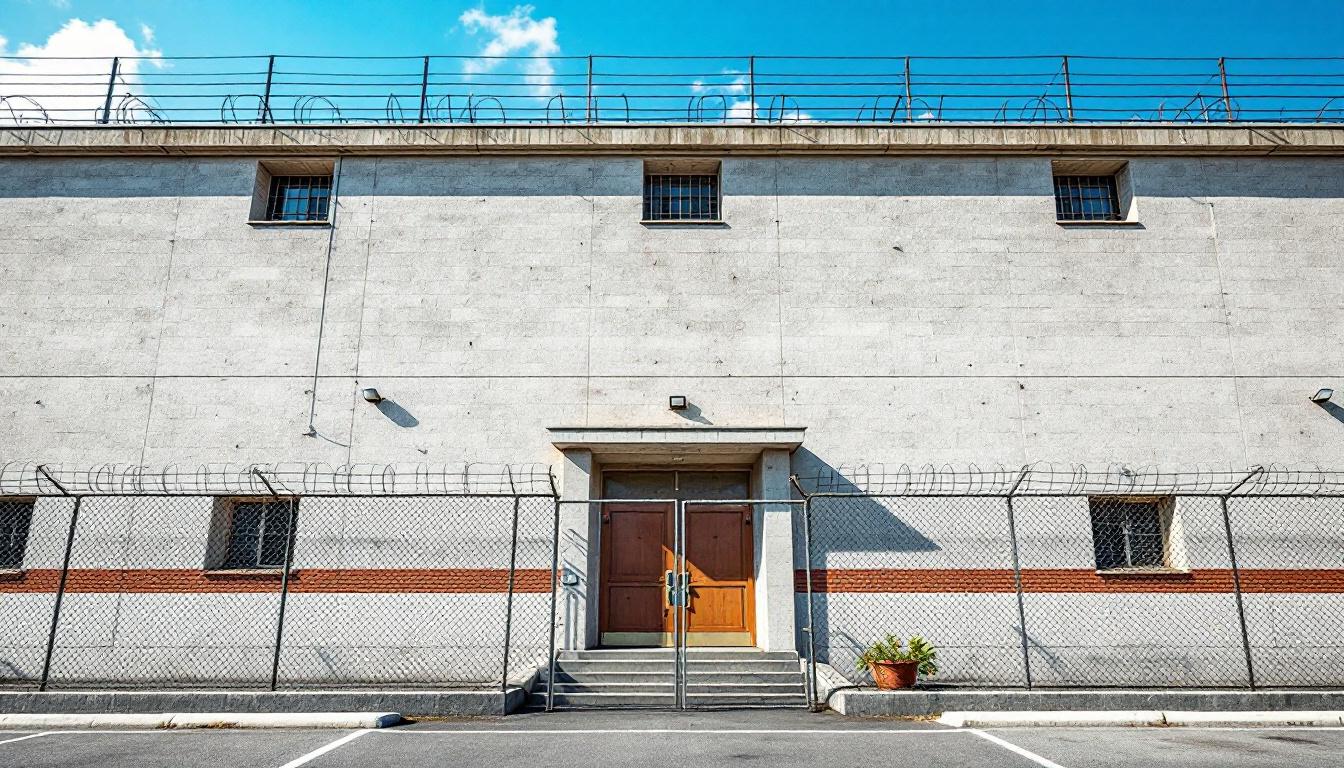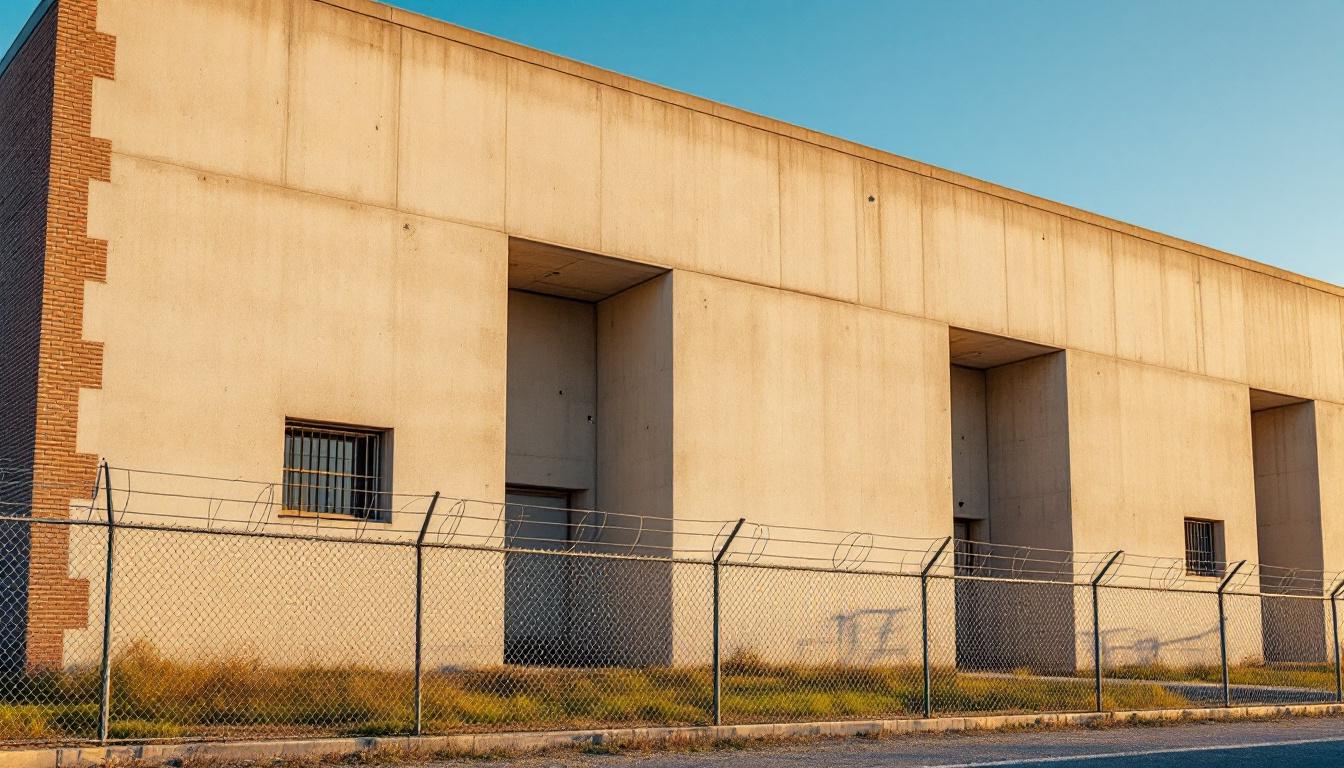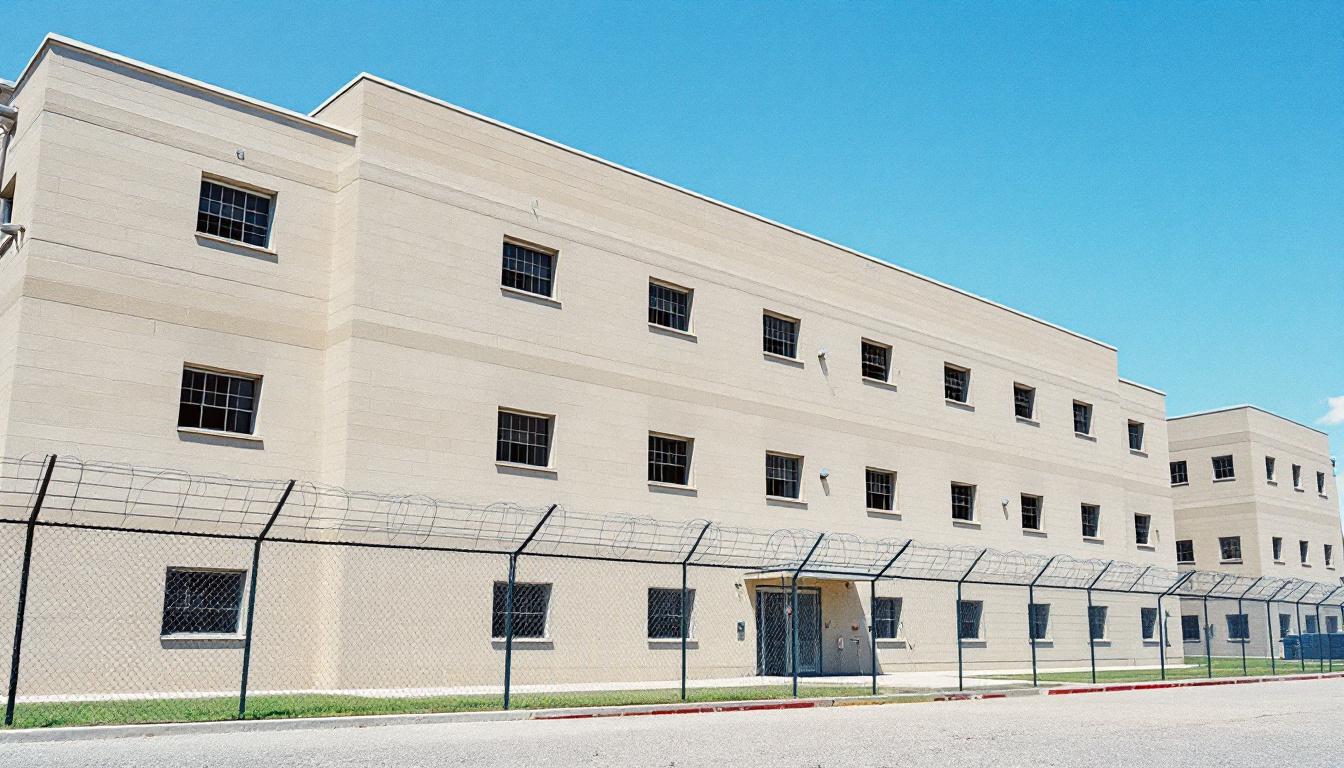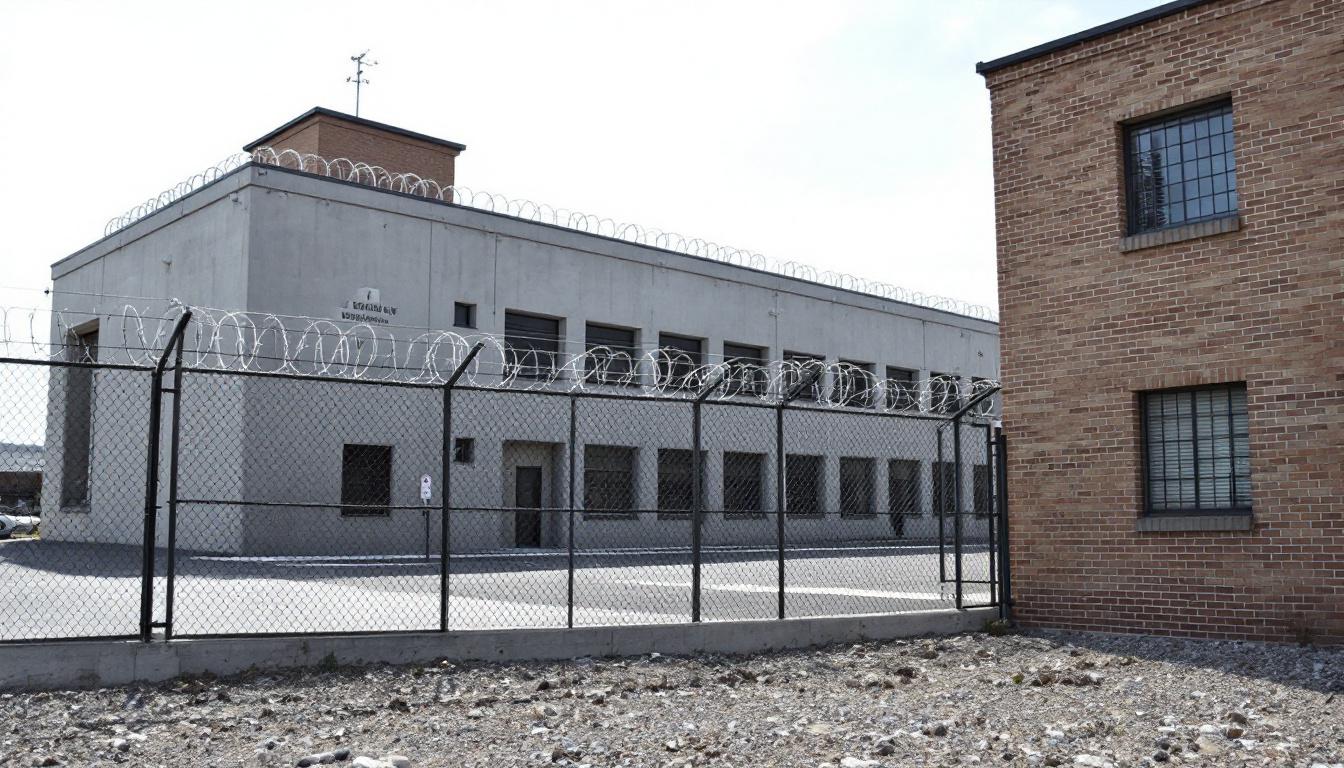
Quick Navigation
How to contact an inmate at Louis c Powledge Unit
This comprehensive guide will walk you through how to connect with an inmate at Louis c Powledge Unit. Follow the steps below to find an inmate and send letters and photos:
- Search for the inmate using our search tool below
- Create your account or log in to Penmate
- Write your message (up to 6,000 characters)
- Send instantly - inmates receive printed copies daily
Find an Inmate
Search for an inmate to start communicating today
Tip: You can search by first name, last name, or inmate ID number
To contact a person at Louis c Powledge Unit start by searching for the person on the official facility website. Perform a search by following these steps:
- Step 1: Enter their first name and last name into the search form and click "Search"
- Step 2: Locate their inmate record
- Step 3: Write down their Inmate ID and any housing information provided
Important! Be sure to enter the person's full name. Nicknames should not be used.
How to Send Messages to Inmates

You can use your phone or computer to send emails, letters, and photos to an inmate. Messages are sent electronically to inmate tablets or kiosks at the facility. If you would like to send a message, start by searching for an inmate at Louis c Powledge Unit.
Sending Photos and Postcards

A great way to send love and support to a loved one at Louis c Powledge Unit is to send photos and postcards. It only takes a few minutes to send photos from your phone and it makes a huge difference. You can also mail postcards with words of support and inspiration, or design your own postcard for special moments like birthdays and holidays.
Important! Be sure not to send any explicit photos or they may not be approved by the facility. You can also use a photo printing app like Penmate to make sure your photos are printed at the correct size (4x6 or 3x5) and are mailed according to the rules and regulations of Louis c Powledge Unit.
Frequently asked questions about Louis c Powledge Unit
-
How long does it take to deliver a message?
If you're sending an email message your letter is usually delivered within 24-48 hours. For messages sent via mail you should expect delivery within 3-7 days. All messages will need be approved by Louis c Powledge Unit.
-
How much does it cost to send a message to Louis c Powledge Unit?
You can send a message free using your phone or mail a message via USPS for the price of a $0.60 stamp and envelope. You can also purchase credits or e-stamps from services starting at $1.99.
-
What services can I use to contact an inmate at Louis c Powledge Unit?
Penmate
You can use Penmate to send letters and photos to an inmate from your phone. It's an easy way to stay in touch during your loved one's incarceration. Use the inmate locator to find an inmate's location and contact information, then you can send messages within a few minutes.
Securus messaging
Securus may be another option for communicating with an inmate at Louis c Powledge Unit. You can create a friends and family account and purchase credits to send messages. All messages will be reviewed and must be approved by the facility.
JPay
Some county jails and state prisons may support sending messages with JPay. You must register an account with the system, find your loved one, and purchase stamps to send messages. For some locations you can also attach photos.
Smart Jail Mail
You may also check if Smart Jail Mail is available at Louis c Powledge Unit. Smart Jail Mail is operated by Smart Communications and has contracted with some state and county jails. After purchasing credits, your messages and photos are sent to the facility, printed out, and then handed out to your loved one.
-
What is the mailing address of Louis c Powledge Unit?
Mailing address:
Louis c Powledge Unit
1400 FM3452
Palestine, TX 75803
Phone: (903) 723-5074Business hours:
- Monday: Open 24 hours
- Tuesday: Open 24 hours
- Wednesday: Open 24 hours
- Thursday: Open 24 hours
- Friday: Open 24 hours
- Saturday: Open 24 hours
- Sunday: Open 24 hours
-
What are the visiting hours at Louis c Powledge Unit?
Visiting hours at Louis c Powledge Unit vary by housing unit and security level. Generally, visits are scheduled on weekends and holidays, with some facilities offering weekday visits. Contact the facility directly at (903) 723-5074 or check their website for the current visiting schedule. Visits typically last 30-60 minutes and must be scheduled in advance.
-
What items are prohibited when sending mail to Louis c Powledge Unit?
Prohibited items typically include: cash, personal checks, stamps, stickers, glitter, glue, tape, staples, paperclips, polaroid photos, musical or blank greeting cards, hardcover books, magazines with staples, and any items containing metal or electronics. Only send letters on plain white paper with blue or black ink. Photos must be printed on regular photo paper (no Polaroids). Always check with Louis c Powledge Unit for their specific mail policies.
-
How do I send money to an inmate at Louis c Powledge Unit?
You can send money to an inmate at Louis c Powledge Unit through several methods: 1) Online using JPay, Access Corrections, or the facility's approved vendor, 2) Money orders mailed directly to the facility with the inmate's name and ID number, 3) Kiosks located in the facility lobby, or 4) Over the phone using a credit or debit card. Fees vary by method, typically ranging from $2.95 to $11.95 per transaction.
-
Can I schedule a video visit with an inmate at Louis c Powledge Unit?
Many facilities now offer video visitation as an alternative to in-person visits. At Louis c Powledge Unit, video visits may be available through services like Penmate, Securus Video Connect, GTL, or ICSolutions. Video visits typically cost $10-20 for 20-30 minutes and must be scheduled in advance. You'll need a computer or smartphone with a camera and reliable internet connection. Contact the facility for their specific video visitation policies and approved vendors.
-
What identification do I need to visit an inmate at Louis c Powledge Unit?
All visitors must present valid government-issued photo identification such as a driver's license, state ID, passport, or military ID. Minors must be accompanied by a parent or legal guardian who can provide the minor's birth certificate. Some facilities require visitors to be on the inmate's approved visitation list, which may require a background check. Contact Louis c Powledge Unit for specific ID requirements and visitor approval procedures.
-
How can I find out an inmate's release date?
To find an inmate's release date at Louis c Powledge Unit, you can: 1) Use the online inmate search tool if available, 2) Call the facility's records department, 3) Contact the inmate's case manager or counselor, or 4) Have the inmate provide this information during a call or visit. For privacy reasons, some facilities only release this information to immediate family members.
Facility Overview
Official Website
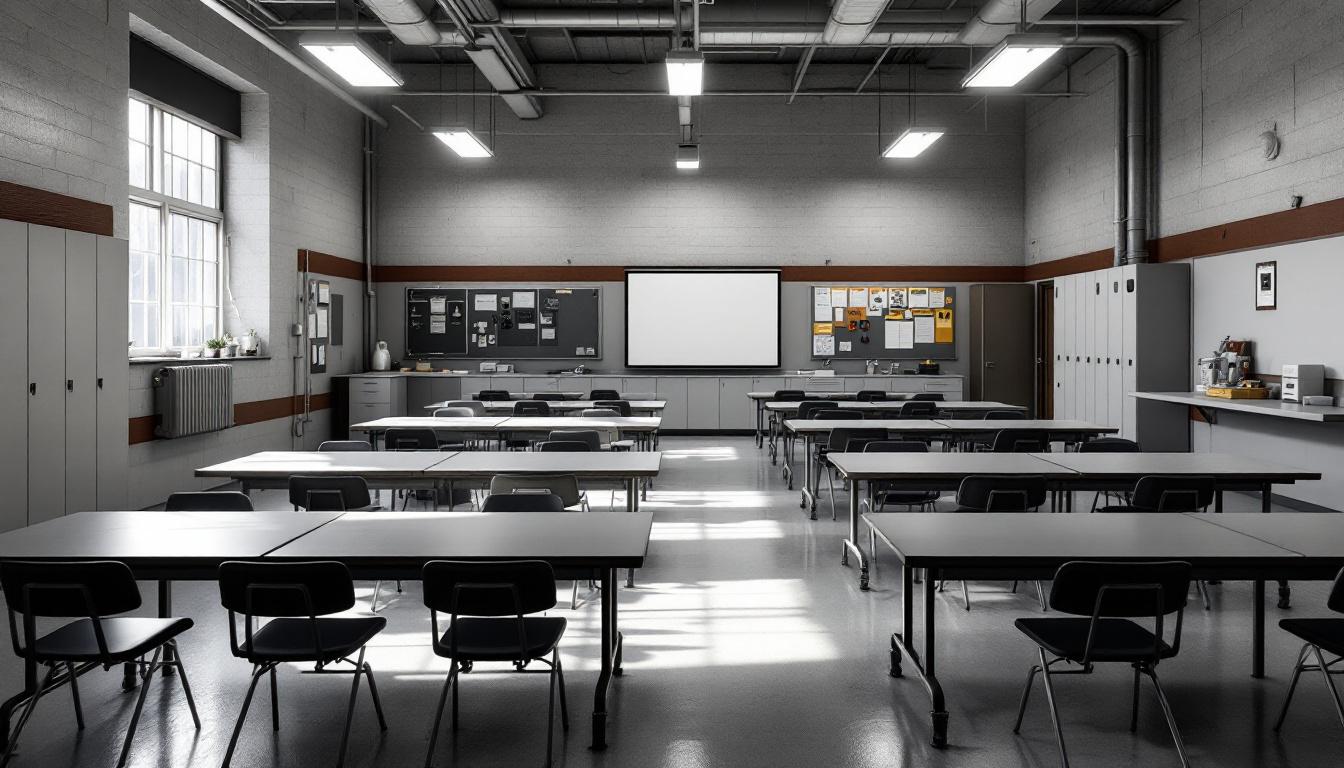
About Louis c Powledge Unit
Within the bustling metropolitan landscape of Dallas, TX, the Powledge Unit serves as a significant correctional facility dedicated to supporting both residents and their families through evidence-based approaches to rehabilitation and reintegration. This TX correctional facility operates with a clear mission to provide comprehensive residents services that address the complex needs of individuals within the Texas correctional system. The facility typically emphasizes structured programming designed around proven methodologies that support personal growth and skill development, recognizing that effective correctional practices benefit not dedicated those directly served but the broader Dallas community as well.
The facility generally offers educational opportunities that may include basic literacy programs, vocational training, and life skills development, all structured to help residents prepare for successful community reintegration. Mental health and substance abuse counseling services are often available, reflecting the facility’s commitment to addressing underlying factors that may contribute to criminal behavior. Family support services typically play an important role in the facility’s approach, as maintaining healthy family connections often proves essential for long-term rehabilitation success.
As part of the south region’s correctional infrastructure, Powledge Unit generally maintains operational standards consistent with state guidelines while adapting services to meet the specific needs of the Dallas area population it serves. The facility’s programming approach typically incorporates both individual and group-based interventions, with staff working to create an environment that encourages positive behavioral change and personal accountability. Through these comprehensive residents services, the correctional facility aims to contribute meaningfully to public safety while supporting individuals on their path toward productive citizenship.
Programs & Services
Comprehensive rehabilitation through structured skill development forms the cornerstone of transformative initiatives designed to address the multifaceted needs of residents. The facility’s approach emphasizes practical preparation for community reintegration while fostering personal growth through evidence-based methodologies. These carefully orchestrated initiatives typically focus on building foundational competencies that may enhance long-term success outcomes upon release.
Educational pathways and vocational training opportunities constitute essential components of the rehabilitative framework, offering residents structured environments to develop marketable skills. Vocational training initiatives often include instruction in trades that align with regional employment demands, providing hands-on experience through supervised workshops and certification programs. Moreover, work programs within the facility may deliver practical experience while teaching responsibility, time management, and collaborative problem-solving skills that prove invaluable in professional settings.
Support services encompass a comprehensive range of therapeutic and personal development initiatives designed to address underlying factors that may contribute to recidivism. Faith-based initiatives typically provide spiritual guidance and community connection opportunities for residents seeking such support during their rehabilitation journey. Trauma-informed care approaches often include specialized counseling services that help residents process past experiences while developing healthy coping mechanisms. Communication skills development initiatives may focus on conflict resolution, interpersonal relationship building, and professional interaction techniques that enhance residents’ ability to navigate complex social situations effectively upon their return to the community.
Daily Life & Visitation
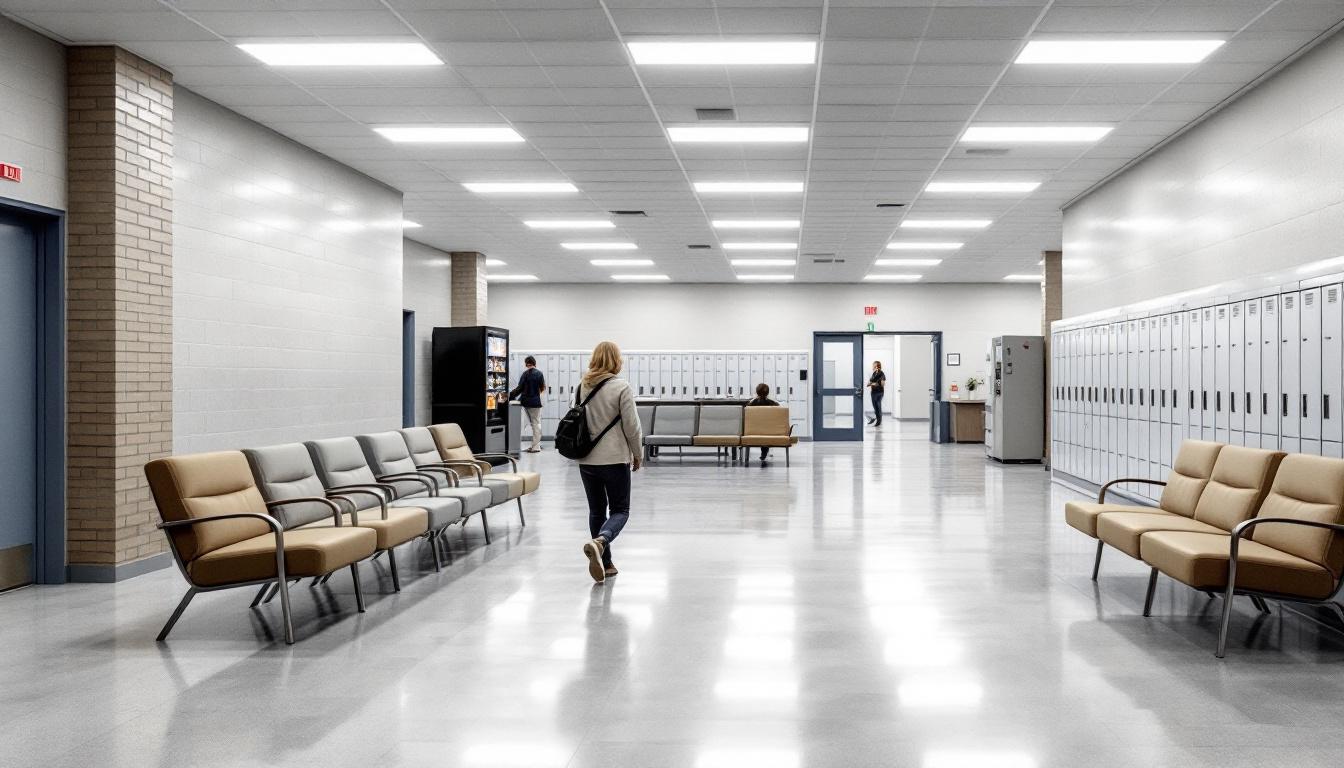
The rhythmic cadence of scheduled activities now defines each day for residents, with structured routines that begin before dawn and continue through evening hours. Residents regularly move through predetermined sequences of meals, work assignments, and programming that deliver consistency and predictability to their daily experience. This framework typically includes morning count procedures, followed by work details or educational programming, with designated periods for recreation and personal time woven throughout the day.
Moreover, living accommodations at the facility generally consist of shared housing units where residents maintain personal spaces within dormitory-style or cell-based arrangements. The dining experience usually involves scheduled meal times in communal areas, where residents gather for breakfast, lunch, and dinner served at consistent intervals. Whereas personal property remains limited to approved items, residents may typically access commissary services to supplement their basic necessities and maintain connections to personal preferences through approved purchases.
The facility’s programming schedule often delivers educational opportunities, vocational training, and recreational activities that help residents develop skills and maintain physical fitness. Work assignments typically range from facility maintenance to food service roles, providing structure while contributing to daily operations. Family connections remain vital through regularly scheduled visitation periods and communication options that may include phone calls and correspondence, helping residents maintain important relationships that support their eventual reintegration into the community.
Ready to Connect?
Start communicating with your loved one today
Search for an Inmate
